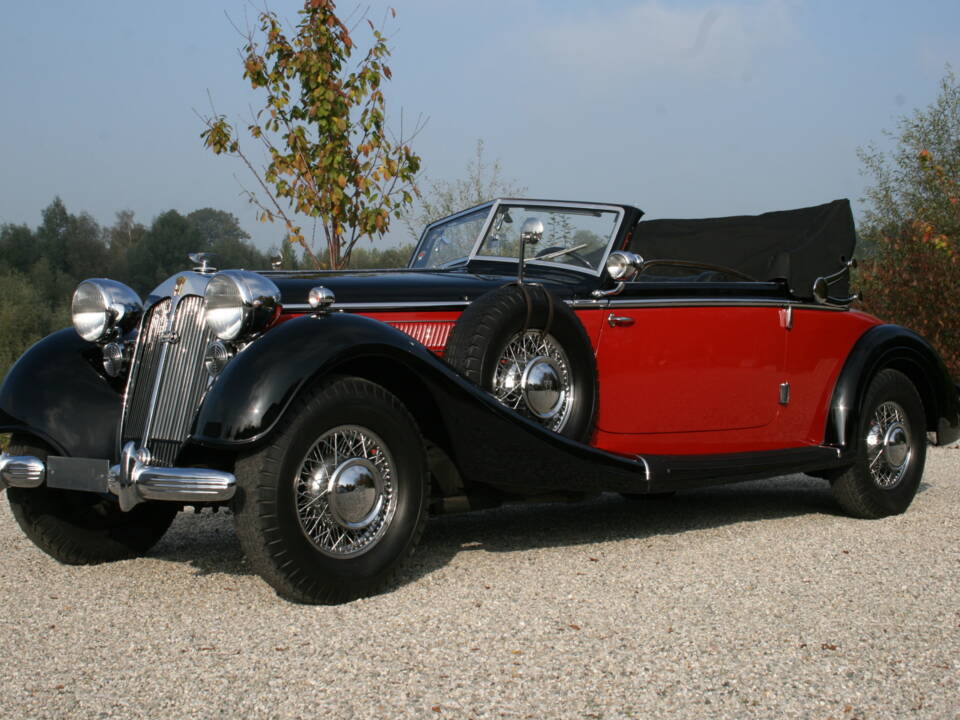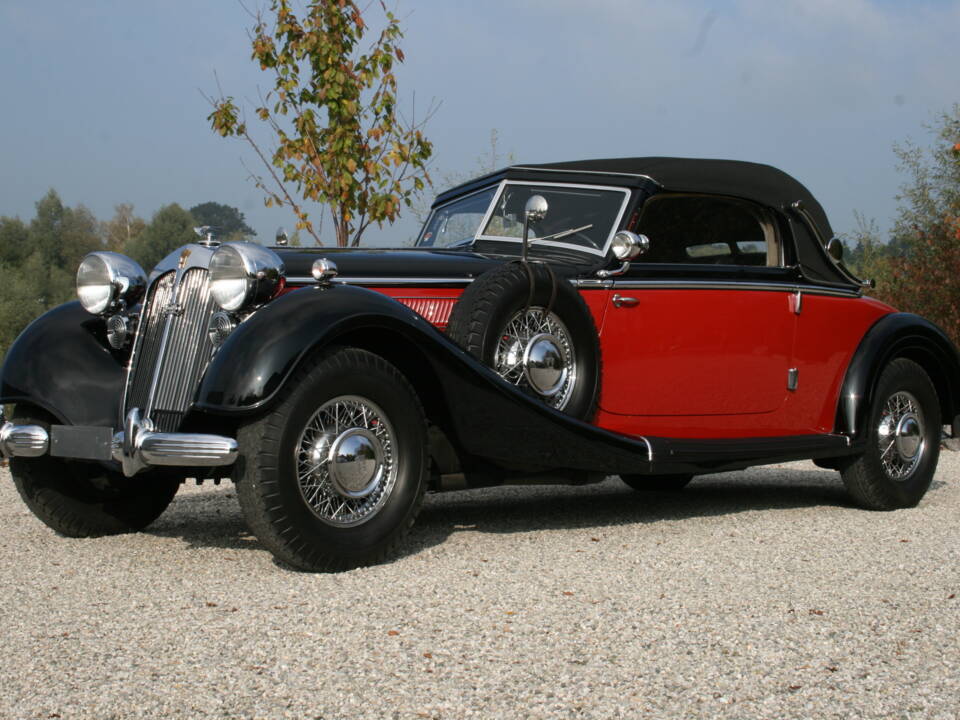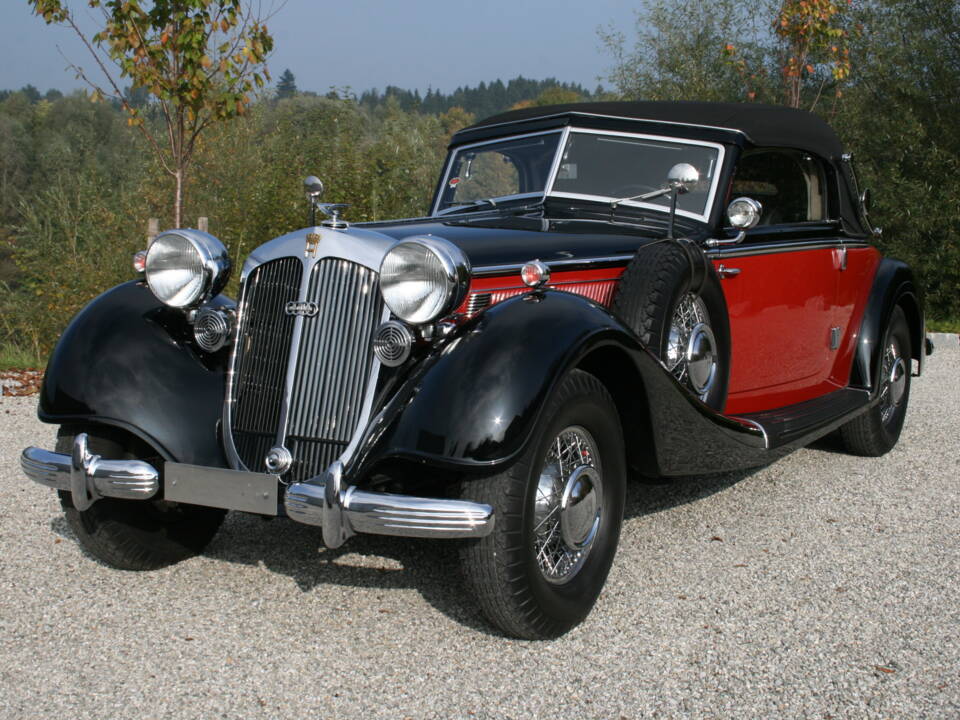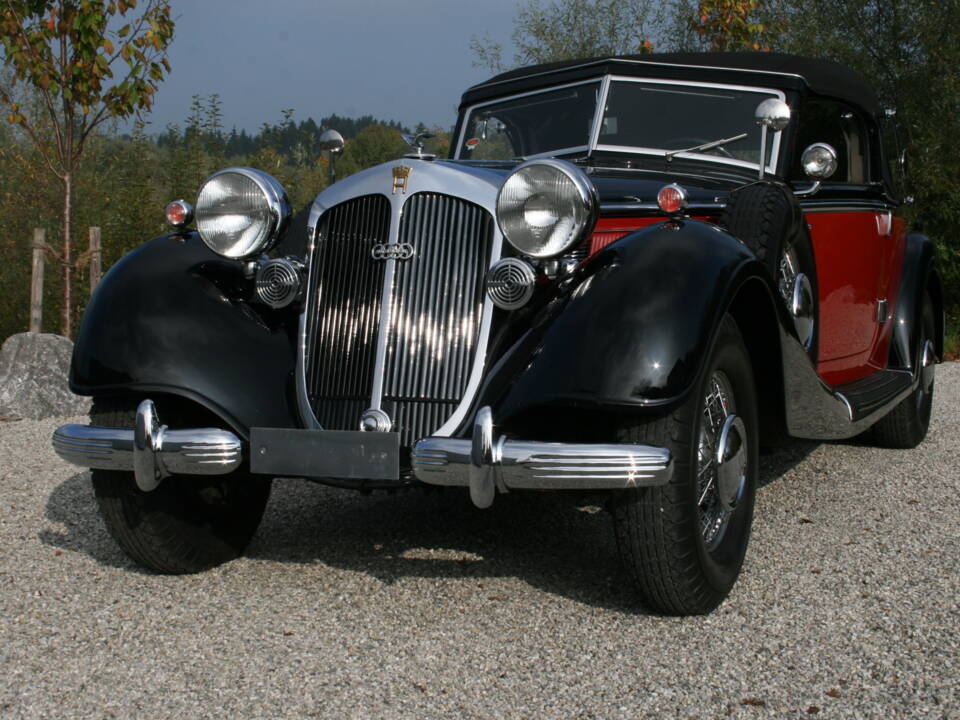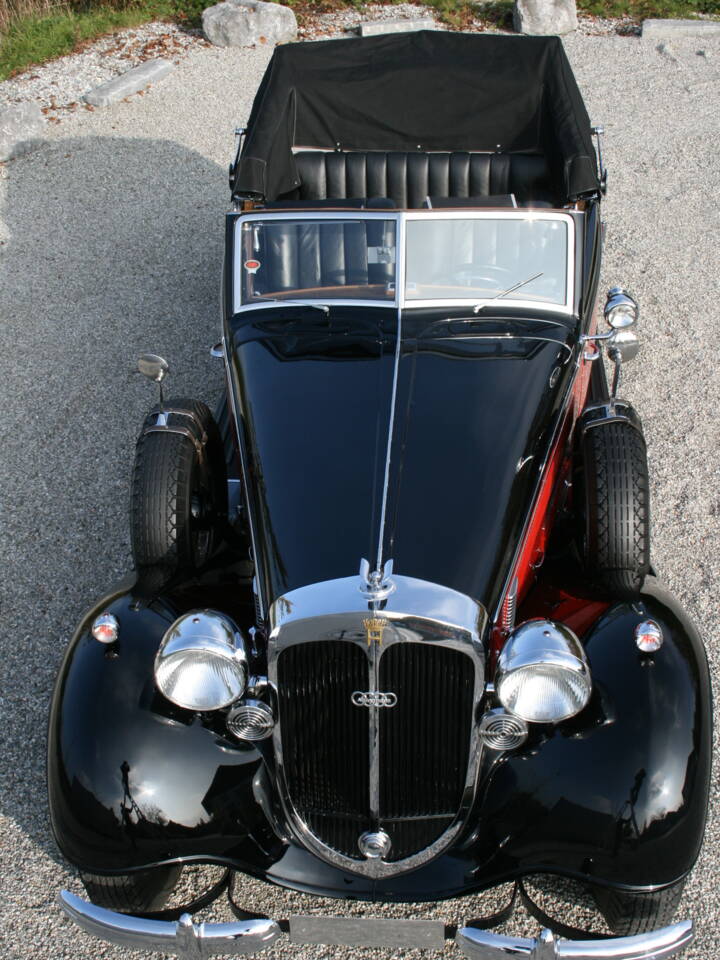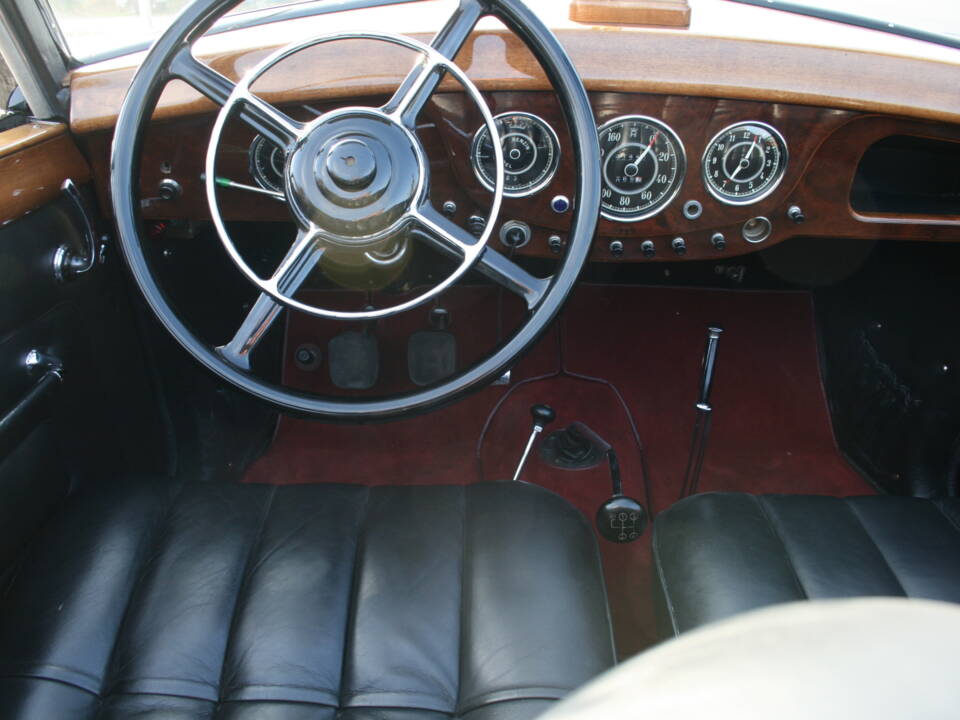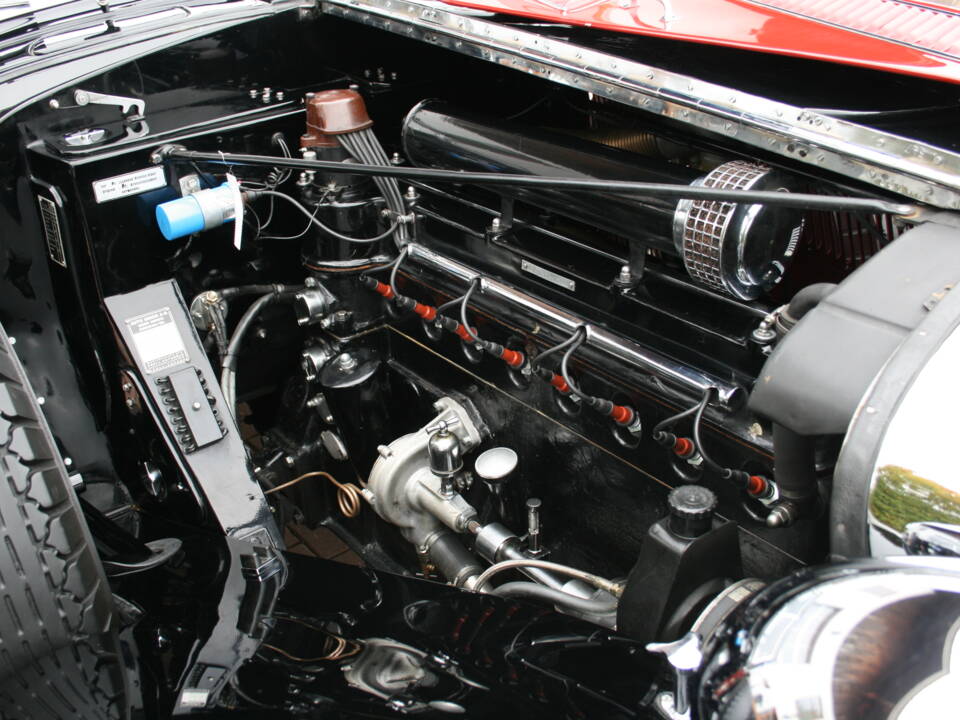1937 | Horch 951 A
Unique piece with a fascinating history
Unique piece with a fascinating history
Unique piece with a fascinating history
Todos los servicios para este vehículo
Descripción
Luxury from Saxony
Today's federal state of Baden-Württemberg is regarded by everyone as the cradle of the automobile. After all, Gottlieb Daimler and Carl Benz were the fathers of the petrol-powered vehicle. However, August Horch and Wilhelm Maybach were also independently looking for ways to develop modern cars in Saxony. In 1909, Horch left the Horch works named after him and founded his own new automobile company. The AUDI brand was born in Zwickau.
In the meantime, the Horchwerke and the Horch brand had become the leading luxury supplier of vehicles with an engine capacity of over 4 litres. It was Gottlieb Daimler's son Paul who designed the first V8 engine to be fitted as standard in Germany for Horch. A V12 cylinder was added in 1931. This engine later became the basis for the new 8-cylinder in-line engines.
Only chassis with engines were offered. Gläser in Dresden in particular, but other coachbuilders also tailored exclusive saloons, coupés and convertibles.
In 1932, Horch, Audi, DKW and Wanderer merged under the management of the banks to form Auto Union AG. The war put an end to the construction of civilian vehicles. The brand was not revitalised.
The car
The chassis for our Horch 951A model was built in 1937 and commissioned by the von Stauffenberg family. Presumably, a sports convertible based on the Horch 951, planned for 1940, was ordered from the Gläser company in Dresden. It is not known whether the vehicle was also delivered to the Stauffenberg family.
In the last days of the war, the chassis and a body were in Dresden at Gläser. The jam manufacturer Haupt from Radebeul bought the parts, hid them from the advancing Russian forces and had them assembled into a coupé after the war. The car was then registered with the papers of a Horch 853 that had burnt out in a hail of bombs. The conversion to a coupé was probably due to the lack of convertible top fabric.
Over the years, the vehicle has been lovingly cared for by various Horch enthusiasts. Research into the vehicle revealed that the car was probably originally one of only 3 prototypes of the 951 sports convertible. This was confirmed when the Horch was converted back into a 2-door sports convertible in 1997. The old nail mouldings and fabric remnants could still be found. An elaborate and high-quality restoration also took place in this context. The history of the vehicle is documented from 1945 onwards.
Many photos and documents document the history of this extraordinary vehicle. A special piece of German automotive history. The opportunity to acquire such a vehicle is rare.
Detalles del vehículo
Datos del vehículo
- Marca
- Horch
- Serie del modelo
- 951
- Modelo
- 951 A
- Primera fecha de registro
- No provisto
- Año de construcción
- 1937
- Kilometraje (leer)
- Número de chasis
- No provisto
- Número de motor
- No provisto
- Número de la caja de cambios
- No provisto
- Coincidencia de números
- No
- Número de propietarios
- No provisto
Detalles técnicos
- Carrocería
- Convertible
- Potencia (kW/CV)
- 88/120
- Capacidad cúbica (cm³)
- 4944
- Cilindro
- 8
- Puertas
- No provisto
- Manejo
- Izquierda
- Caja de cambios
- Manual
- Marchas
- 4
- Engranaje
- Trasero
- Freno delantero
- Tambor
- Freno trasero
- Tambor
- Combustible
- Gasolina
Configuración individual
- Color exterior
- Rojo
- Techo plegable
- Sí
- Color interior
- Negro
- Material interior
- Cuero
Condición, registro y documentación.
- Tiene peritaje
- Condición
- Informe de inspección del libro
- ITV
- Matrícula histórica
- Matriculado
- Listo para conducir
- FIVA
Autoevaluación
Ubicación

Carruca Classic Cars
Thomas Rupf
Kraglingerstr. 14A
83071 Stephanskirchen
🇩🇪 Alemania
